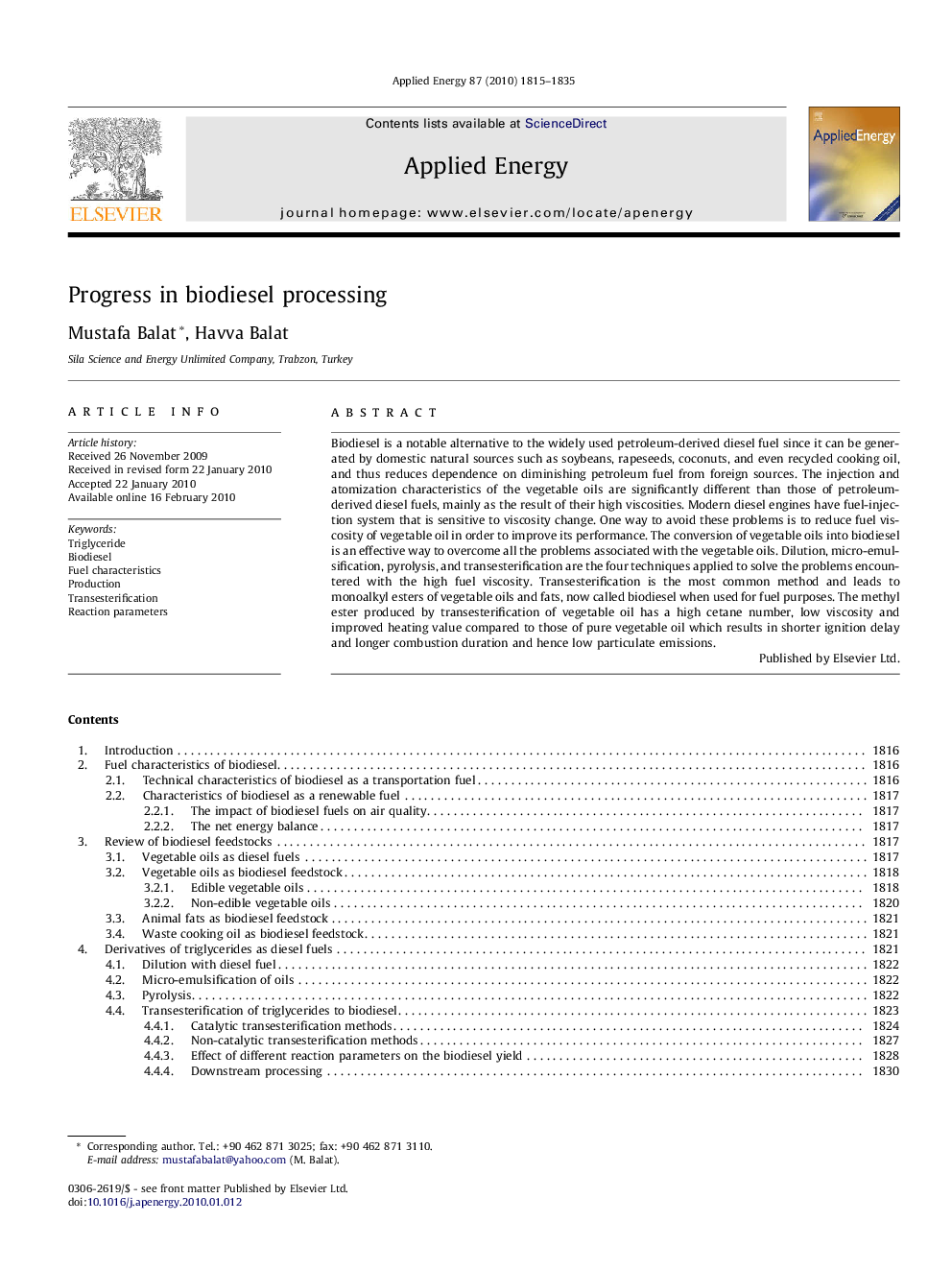| کد مقاله | کد نشریه | سال انتشار | مقاله انگلیسی | نسخه تمام متن |
|---|---|---|---|---|
| 244706 | 501958 | 2010 | 21 صفحه PDF | دانلود رایگان |

Biodiesel is a notable alternative to the widely used petroleum-derived diesel fuel since it can be generated by domestic natural sources such as soybeans, rapeseeds, coconuts, and even recycled cooking oil, and thus reduces dependence on diminishing petroleum fuel from foreign sources. The injection and atomization characteristics of the vegetable oils are significantly different than those of petroleum-derived diesel fuels, mainly as the result of their high viscosities. Modern diesel engines have fuel-injection system that is sensitive to viscosity change. One way to avoid these problems is to reduce fuel viscosity of vegetable oil in order to improve its performance. The conversion of vegetable oils into biodiesel is an effective way to overcome all the problems associated with the vegetable oils. Dilution, micro-emulsification, pyrolysis, and transesterification are the four techniques applied to solve the problems encountered with the high fuel viscosity. Transesterification is the most common method and leads to monoalkyl esters of vegetable oils and fats, now called biodiesel when used for fuel purposes. The methyl ester produced by transesterification of vegetable oil has a high cetane number, low viscosity and improved heating value compared to those of pure vegetable oil which results in shorter ignition delay and longer combustion duration and hence low particulate emissions.
Journal: Applied Energy - Volume 87, Issue 6, June 2010, Pages 1815–1835